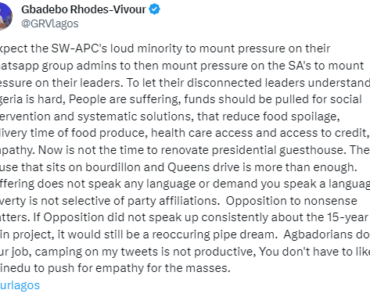[ad_1]
Exposing the Facts: Assessing the Legitimacy of Claims
In today’s information-saturated world, distinguishing between truth and falsehood can be a daunting task. Claims are abundant, but how can we ensure their validity? It is imperative to scrutinize any claim by thoroughly examining the evidence behind it. This article will delve into the significance of scrutinizing claims and the methods we can employ to reveal the truth.
When confronted with a claim, it is vital not to immediately accept or reject it. Instead, adopting a healthy level of skepticism is essential. This entails maintaining a critical mindset that aims to understand the supporting evidence beneath the claim, rather than automatically assuming it is false.
A key aspect of assessing the validity of a claim is evaluating the credibility of the source. Is the claim made by an individual or organization with a proven track record of reliability? Have they been involved in spreading fake news or misinformation in the past? Investigating the credibility of the source provides insight into the potential validity of the claim.
Moreover, it is crucial to seek supporting evidence for the claim. Are there reputable sources that corroborate the claim? Has the claim undergone rigorous scrutiny by experts in the relevant field? The presence of numerous reliable sources supporting the claim strengthens its credibility, whereas the absence of substantial evidence raises doubts.
Additionally, evaluating the methodology used to formulate a claim is essential. Does the claim rest on logical and empirical foundations? Analyzing the reasoning and the robustness of the data underlying the claim offers insights into its reliability. Claims based on flawed logic or selectively chosen data should be approached with skepticism, as they are more likely to be invalid.
Considering the presence of bias is another critical aspect. Does the claim align with the agenda or interests of individuals or organizations involved? Bias can contaminate the validity of a claim, as it may influence the selection and interpretation of evidence. Acknowledging and accounting for bias enable a better assessment of the claim’s objectivity and truthfulness.
In certain cases, conducting further research through fact-checking platforms or consulting subject matter experts can be valuable. Fact-checking platforms evaluate the accuracy of claims, often debunking false or misleading information. Subject matter experts offer their informed opinion based on their knowledge and experience, providing insight into the claim’s validity.
As information consumers, it is our responsibility to actively question claims and search for the truth. Uncovering the validity of a claim necessitates critical thinking, assessment of credibility, examination of evidence, evaluation of methodologies, and recognition of bias. By utilizing these analytical tools, we can navigate the sea of claims and make informed decisions based on verified facts.
In conclusion, unraveling the truth behind any claim requires a multifaceted approach that involves critical examination. Claims should be approached skeptically, with consideration given to the credibility of the source, the presence of supporting evidence, the soundness of the methodology, and the potential for bias. By employing these analytical tools, we can gain a deeper understanding of the validity of claims and make well-informed choices in a world flooded with information.
[ad_2]
→ READ ALSO : The Definitive SEO-Optimized Guide to Selecting the Perfect Hosting Service for Your Website
→ READ ALSO : Why Pursuing a Degree Remains Significant in Today’s Job Market
→ READ ALSO : The Life-Altering Impact of Donation: Unleashing the Power of Generosity
Suivez tous les scores en direct ici !
























